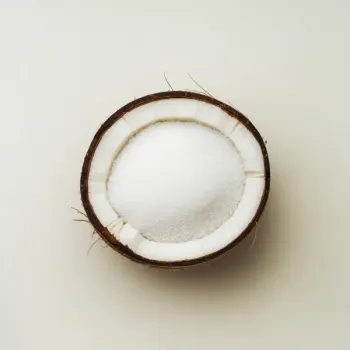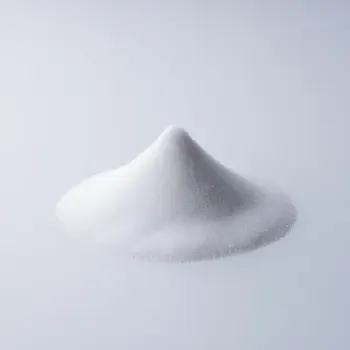Coconut Sugar vs Sugar refers to a comparison between two sweeteners: coconut sugar, a less processed alternative with a caramel-like taste and some nutrients, and white sugar, known for its neutrality and versatility in cooking and baking.

Coconut sugar, derived from the sap of the coconut palm, offers a more natural and minimally processed alternative to regular sugar. With a subtle caramel-like taste, it's often touted as a more sustainable and healthier sweetener.

Sugar, specifically white sugar, is a highly refined sweetener produced from sugarcane or sugar beets. It's known for its pure sweetness and versatility, making it a staple in kitchens worldwide.
Coconut sugar and regular sugar differ in taste, with coconut sugar having a caramel note. They also differ in processing; coconut sugar is less processed. Nutrient-wise, coconut sugar contains trace amounts of minerals and fiber, whereas regular sugar lacks these nutrients.

Your ultimate Recipe Box, Meal Planner, and Cooking Class all in one
Best used in baked goods like brownies or cookies where its caramel undertones can shine. Expect a darker color and slight textural difference. Use a 1:1 substitute for white sugar but adjust liquid ratios as needed. Ideal for cakes, meringues, and candies where a neutral sweetness and color are desired. It dissolves and aerates well, creating lighter textures. Follow recipes as written for best results.
Adds depth to coffee or tea but may not dissolve as readily. Start with less than you would with white sugar to adjust for its richer flavor. Perfect for sweetening all types of beverages due to its solubility and neutral taste. Use to sweeten to personal preference without altering the drink's flavor profile.
Imparts a complex sweetness to BBQ sauces or dressings. It can complement other bold flavors but should be used sparingly to avoid overpowering the dish. Provides a balanced sweetness in ketchup, teriyaki sauce, or salad dressings. Its ability to blend seamlessly with other ingredients makes it a go-to choice.
Coconut sugar contains inulin, a type of dietary fiber, and small amounts of nutrients like zinc and iron, which regular sugar lacks.
| Nutrient | Sugar ( per 100 grams ) | Coconut Sugar ( per 100 grams ) |
|---|---|---|
| Fat | 0g | 0g |
| Fiber | 0g | 0.5g |
| Sodium | 1mg | 45mg |
| Protein | 0g | 1.3g |
| Calories | 387 | 375 |
| Carbohydrates | 100g | 100g |
While coconut sugar contains trace nutrients and fiber not found in regular sugar, it should still be consumed in moderation as it is a form of sugar.
Coconut sugar can replace white sugar in baking, but expect differences in flavor, color, and texture. It's best suited for recipes where its caramel-like taste can be appreciated.
No, coconut sugar does not taste like coconut. It has a caramel-like flavor that is distinct from the taste of coconut.
Coconut sugar does not dissolve as easily as white sugar, so it might require more stirring or a finer grind to dissolve in beverages.
Coconut sugar has a lower glycemic index than regular sugar, but it still raises blood sugar levels and should be used cautiously by diabetics.